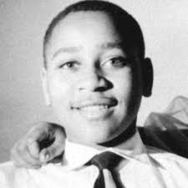A cynic’s response: “They don’t.”
Painfully naive white America’s response: “We welcome everybody at our church, and no one is ever excluded.”
Painfully honest white America’s response: “Most of us don’t affirm black lives matter very well most of the time in our worship. How can we do better?”
Thanks for asking. Some suggest George Floyd’s killing is going to be an Emmett Tillian tipping point for America–in other words, a straw-breaking-the-camel’s-back, tragic event (the culmination of a sea of previous unjust acts) that sparks real, if slower-than-desired change, the way Till’s murder galvanized those whose commitment to the cause and behavioral resolve eventually led to the Civil Rights Act nine years later. I hope so–but even if it does, will it have a similar effect on contemporary worship in the suburban American Church?
tipping point for America–in other words, a straw-breaking-the-camel’s-back, tragic event (the culmination of a sea of previous unjust acts) that sparks real, if slower-than-desired change, the way Till’s murder galvanized those whose commitment to the cause and behavioral resolve eventually led to the Civil Rights Act nine years later. I hope so–but even if it does, will it have a similar effect on contemporary worship in the suburban American Church?
No.
Thanks for throwing a wet blanket on our good intentions, Mr. Worship Professor!
OK, let me qualify that gloomy prognostication. Floyd’s death will be a vague memory six months from now in most contemporary worship services in suburban America–having had an ethereal impact, if any–unless two things happen. We’ll look at the first this week and the second, Lord willing, next week.
First, contemporary American worship must be willing to break the status-quo mold in times of crisis–and then periodically ever after. I’m going to extend shout-outs to two former Judson University students here (#ProudProf), both in the past two weeks having shown a way forward for any of us white folks in worship leadership in the American suburbs trying to effect the kind of change I’m suggesting would be helpful to the Kingdom’s cause.
Ian Simkins, teaching pastor at Community Christian Church, Naperville, Ill., has appeared in this blog before (once I get back to trying to answer the “Should Contemporary Worship Music Be Beautiful?” question in a few weeks, he’s scheduled to appear again), so anticipating his church would have something of value to impart yesterday, I caught the beginning of the service. Not only did they eschew the peppy band for the week, but they, in Simkins’ words, “hit ‘pause’ on what the original plan had been and . . . call[ed] an audible for this weekend.” Following a time of silence and some basic announcements, the rest of the service featured founding pastor Dave Ferguson, who is white, in (socially distanced) dialogue with Quentin Mumphery, who is black, pastor of New Hope Covenant Church. How can we do better? You can watch the whole service here.
I surveyed many church services yesterday, and I wish more had chosen to call a similar audible. That said, I think we can accomplish the spirit of the goal I am proposing in other, slightly less (but only slightly less) radical ways. Here, too, however, being willing to push against the gravitational pull of business-as-usual is critical.
A week ago last Friday, as cities in major metropolises had just begun to burn, a recent JU Worship Arts grad, Catlin Walton, led a powerful service of healing and hope for the congregation of First Christian Church on Chicago’s south side. If you have 40 minutes to spare, it’s well worth the watch.
Following my second viewing of the service, I felt compelled to write the following:
As I experienced this service’s depth and breadth today, I appreciated Catlin’s efforts to acknowledge the gravitas of our current circumstances. I confess this is my bent (and doesn’t need to be everyone’s), but I have missed this focus occasionally in the corporate worship services I have watched since the pandemic relegated us all to virtual church attendance. I recognize and appreciate the desire to bring comfort through similarity–keeping the worship services as pre-pandemic normal as possible–but do we then unwittingly risk seeming unfazed by the horrors on the periphery of our existence? It’s not the equivalent of Nero fiddling while Rome burned, but nor does it often enough do justice, I fear, to the real and true suffering of many in the midst of this pandemic … and now add another slew of people grieving yet one more horrific example of racial injustice in this country. Psalm 13’s “How long, O Lord?” rings true today, as it has perpetually down through the ages.
I fully recognize what works in a Friday evening coffeehouse doesn’t translate perfectly to Sunday morning. I am also very aware of the need for worship leaders to help point people to uplifting and hope-producing truths of our faith, including God’s love and faithfulness, in the midst of crises. I am not advocating perpetual lamentation in our corporate worship services for the immediate future. But I wonder if the American Church would at the moment benefit greatly from a slightly broader perspective of our current circumstances, from a slightly different worship set or patterns of liturgy than we have employed with regularity in the recent past. Perhaps a Redmanesque season–or even one song per set–of bandless, a cappella singing would be in order. Maybe now is the perfect time to teach the congregation some Taizé choruses or African-American spirituals. Etc.
Worship leaders, I pray prophetic boldness for you in this tumultuous season; your role over the course of the next several weeks will have lasting impact on the future of your churches’ worship. I’ll share Part II on the effort to demonstrate how black lives matter in contemporary worship next week, Lord willing.
The Lord be with you!
